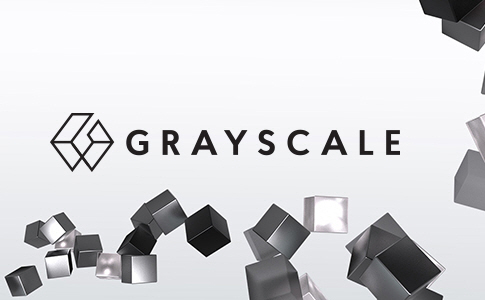

Cryptocurrency-based investment products such as bitcoin operated by American digital asset manager Grayscale are evaluated to have led to the recent unprecedented increase in bitcoin prices. This is because it serves as a channel for institutional investors who want to indirectly invest in cryptocurrency.
Grayscale raised $3.3 billion in cryptocurrency-based investment products such as Bitcoin in the fourth quarter of last year alone. The total assets under management (AUM) that Grayscale released at the end of last year amounted to $18.8 billion (about 208 trillion won).
Attorney Park Jong-baek (Pacific Law Firm) explained the structure of the Grayscale Bitcoin Trust (GBTC) and the regulatory environment surrounding it at the 1st seminar of’Virtual Capital Industry Rights Act TF for Blockchain Industry Promotion and Consumer Protection’ on the afternoon of the 19th.
Unlike Korean regulators that adhere to the stance of “encouraging the development of blockchain technology, but prohibiting issuance and distribution of virtual assets (cryptocurrency),” in the United States, companies and financial institutions use cryptocurrency to conduct various businesses. They evaluated that they had established a legal and regulatory basis for them.
Attorney Park said, “In the United States, the regulatory authorities clarified that bitcoin is a commodity, not a security, so bitcoin futures through the Commodity Futures Trading Commission (CFTC) approval, not the Securities Exchange Commission (SEC) approval. “It is possible to trade,” he said. “Investment trust products such as GBTC could also come out under this premise.”

Attorney Park explained, “In Korea, Grayscale is known as a consignment company, but in reality Grayscale plays the role of a manager, and there is a separate consignment company.”
According to Attorney Park, the main actors participating in GBTC are as follows.
- Delaware-based asset management company’Grayscale’ leading fund operation
- Delaware Trust Company, a trust company that entrusts stocks issued by the fund
- ‘Coinbase Custudy Trust Company’, a trustee company that stores bitcoins purchased by GBTC through exchanges, etc.
They all provide the necessary services to investors under the regulation of the authorities. The trust company’Delaware Trust Company’ is regulated by the Delaware State Trust Business Accreditation System. On the other hand, the trustee company’Coinbase Custody Trust’ is subject to the New York State Financial Supervisory Service’s’Bit License’ system.

In addition,’Genesis Global Trading’ registered as a broker dealer with the SEC will also participate in GBTC. The company plays a role as an Authorized Participant (AP) that communicates requests for issuance of new shares from investors to Grayscale in units of 100, and as a distributor that delivers issued funds to investors.

Not only companies participating in GBTC issuance, but also investors are regulated by the authorities. Investor protection is primarily governed by the SEC regulations.
First of all, in the case of the primary market, only eligible institutional investors and individual investors with an annual income of $200,000 or more or total assets of $1 million or more can participate. According to attorney Park, the fund can be issued without registering as a security under the condition that it complies with the obligation to report certain matters required by the SEC and the obligation to restrict resale of 6 months.
Attorney Park explained, “It seems that the original restriction was limited to one year, but was shortened to six months, subject to compliance with SEC reporting obligations under Article 144 of the Securities Act and Article 13 of the Securities Exchange Act.”
According to attorney Park, institutions and professional investors who have purchased GBTC in the private market can sell it to ordinary investors six months later. However, only transactions through an over-the-counter (OTC) platform approved by FINRA (Financial Industry Regulatory Authority), a self-regulatory body that mainly manages approval and application for broker dealers with the SEC, is allowed.

Attorney Park emphasized that in order to be able to operate products such as GBTC in Korea, the legal nature of cryptocurrencies such as bitcoin must be defined first. It is unclear whether cryptocurrency can be classified as an intangible movable property, or whether it can be classified as an asset for investment with property value under the Capital Market Act.
Financial institutions such as banks are also blocked from storing and depositing cryptocurrencies as ancillary business. Attorney Park said, “Even though the authorities consider that the consignment business of general companies or cryptocurrency exchanges is possible, it does not seem to be that (consignment) is still an ancillary business of banks, given the status of permission interpretation and regulatory sandbox permission.” Said.
He said that it is controversial whether it is possible to register a virtual asset investment fund by a collective investment company, buy bitcoin by a trust company, sell fund-profitable securities by securities companies, and invest in profitable securities by financial companies.
The seminar was co-hosted by Kim Byung-wook, a member of the Democratic Party (secretary of the Political Affairs Committee), CoinDesk Korea, and the Korea Blockchain Association. The Virtual Capital Industry Rights Law TF Seminar is scheduled to be held four times. The presentation material can be downloaded here.
Reports and press releases should be sent to [email protected].
